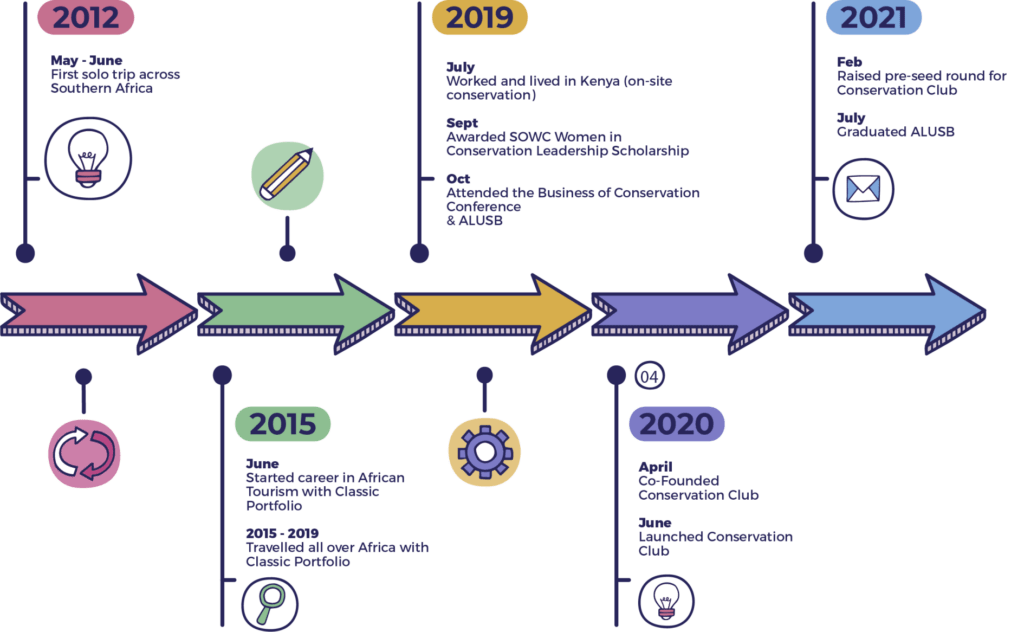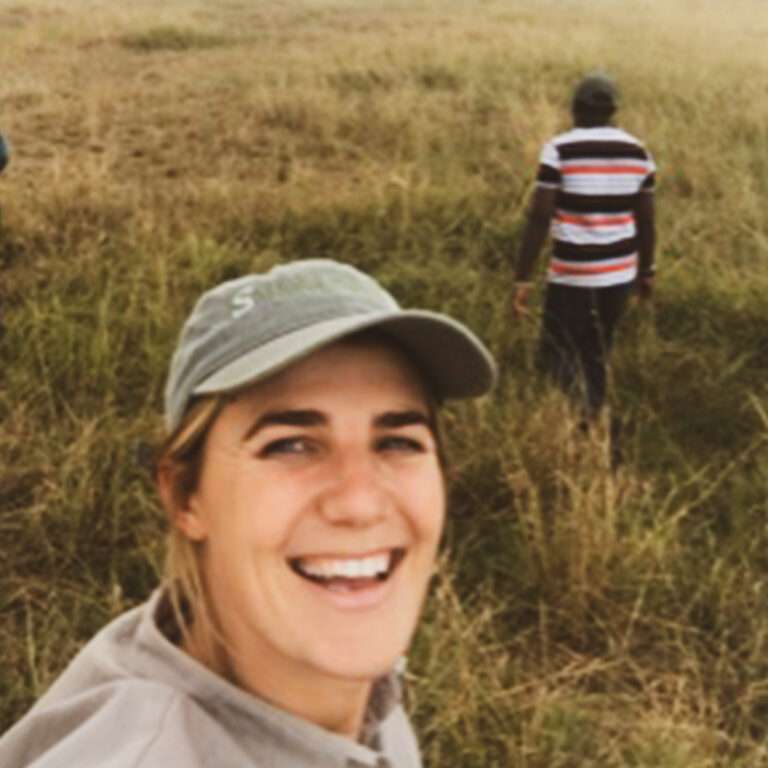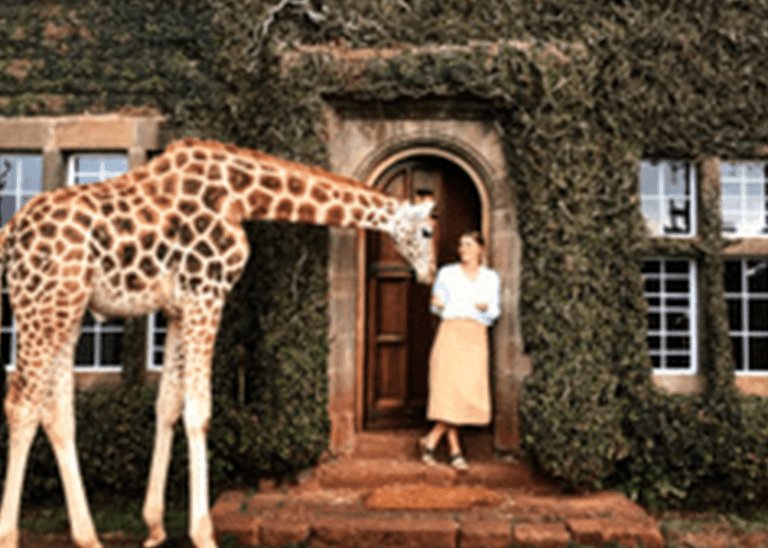
I am a water polo player - and have played abroad in the USA and Australia, as well as for the South African national team.
I was incredibly fortunate to travel Africa, especially Southern Africa, from a young age and have always felt an incredible affinity to wildlife and Africa’s natural beauty. My first job in eco-tourism gave me the opportunity to travel to far flung destinations across the African continent, gain further insight into on-the-ground conservation and better understand the importance of tourism as well as the challenges. My first job also gave me the opportunity to be mentored by a formidable female leader in tourism-conservation, Suzanne Bayly-Coupe. I was inspired by her forward way of thinking and her ability to underpin the conservation conversation with business insight and strategy. She showed me that there needs to be more women taking up space at the table, spearheading important innovation and being part of the solution.
Additionally, I have always been motivated by purpose and the more I understood about conservation and its complexities, as well as its importance in Africa, the more responsibility I felt I had to take this understanding and turn it into meaningful contribution. It is safe to say that my purpose in life and in my career has been significantly shaped by my insight into conservation and its need for economically sustainable solutions. I remember several instances where I would be walking through Congo rainforests or just driving through a vast expanse of land, and the realisation would hit me that I can’t ‘unknow’ what I know. I feel incredibly privileged for my exposure into this world and the people I have met along the way. I am now determined to spend this privilege by working towards sustainable solutions.
There were many ‘aha’ moments that came in different forms but they all had a similar sentiment...

There have always been incredibly respected female figures in the tourism-conservation industry. They are still around and continue to make waves, however we need more of them. It feels to me that the industry, to date, has predominantly been made up of men and has become a bit of an ‘old boys club’. We need to open this up and diversify thinking by bringing in new perspectives and ideas for innovation. It’s important that women are given the opportunity to have a seat at the table and take part in the conservation. There is a current status quo that needs disrupting, and I think women will be the ones to do it.
I am fortunate to have been mentored by a highly respected female leader, Suzanne Bayly-Coupe, in the tourism-conservation industry and have always had exposure to many females who are tourism pioneers in their own right. For this reason, I have always been confident that women hold an important place in this conversation. However, my main challenge has been in figuring out how to take on my own leadership role and carve my own path as a female leader in the industry. The MBA has been crucial in helping me understand myself as a leader and equipping me with the tools to take on this leadership role and make it my own. It has also provided me with the skills and the insight to continuously adapt and evolve my leadership to ensure that I remain on track with my vision.
Conservation Club is a meeting place of tech, conservation and travel (a few of my favourite things). It is born from the understanding that sustainable tourism is the best play we have had preserving our natural resources for future generations. Conservation Club is a direct booking platform for sustainable travel in Southern and Eastern Africa. Through the platform, you get 'backstage pass' access to curated accommodation and conservation experiences across the continent. We are committed to building an inclusive industry that benefits conservation and communities. As we emerge from Covid, sustainable eco-tourism needs to be a focus. The pandemic presented some opportunities for improvement and change in the current African travel industry and Conservation Club intends to take these on. With my Co-Founders Bas and Justin, we are dedicated to building a product that propels this industry forward. Simultaneously we are giving people access to some of the world’s top conservation efforts through immersive experiences.
I think we are going to be looking at a very different conservation landscape in the next 5 years. To overcome the current conservation challenges, we need to be developing new ways of thinking about conservation, through scalable methods that deliver results. Up until now, the pace of innovation and change in conservation industry has been too slow and it has struggled to keep up with the growing problem. The business of conservation in the next 5 years is going to be a space for innovation, social entrepreneurship and transformation. For this reason, we are going to see the faces of conservation change as we draw from wider pools of expertise and approach conservation with a more holistic and well-rounded approach. In the past few years, we have seen women increasingly take key positions in various industries with great success. As women gain more power and influence in the world of business, they bring with them fresh ideas and innovation and this is exactly what is required for the conservation industry to move forward.
I really believe that this is the time to make a difference. It feels like it is now or never. So don’t waste time! Don’t waste time worrying about the status quo, or what others may think, or that you might be stepping on toes. Be confident and audacious, and take your place firmly at the table. It’s not the time to be brought down by biases and perceived limitations that have stunted innovative women before. Transformational change is needed and women are transformational.

